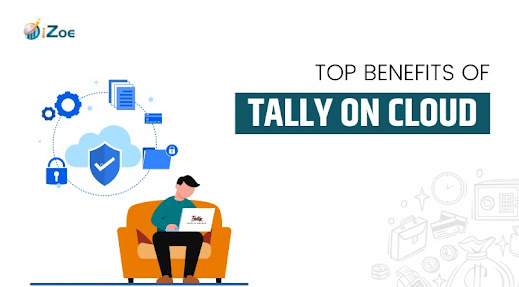Cloud Accounting | Simplify Finances with Cloud Computing
In the modern digital age, businesses are rapidly shifting from traditional practices to smarter, more efficient technologies. One of the most transformative innovations in financial management is cloud accounting. Whether you run a startup or a large enterprise, understanding and embracing cloud accounting can significantly improve your financial operations, accuracy, and decision-making.
What is Cloud Accounting?
Cloud accounting refers to the use of web-based accounting software that is hosted on remote servers. Unlike traditional accounting software that is installed on a local computer, cloud accounting allows users to access financial data and tools through the internet, from anywhere and at any time.
All the financial information is stored securely in the cloud, and updates are made in real time. This eliminates the need for constant manual backups and reduces the risk of data loss due to system crashes or theft.
Key Features of Cloud Accounting Software
1. Real-Time Access: One of the biggest advantages of cloud accounting is that it provides real-time access to financial data. Business owners, accountants, and team members can collaborate and view up-to-date information simultaneously.
2. Automation: Cloud accounting automates many routine tasks such as invoicing, expense tracking, payroll, and bank reconciliations. This not only saves time but also reduces the chances of errors.
3. Security: Cloud platforms use encryption, multi-factor authentication, and automatic backups to ensure your financial data is safe. In many cases, this is more secure than storing data on a local server or desktop.
4. Scalability: As your business grows, your accounting needs grow too. Cloud software offers flexible pricing and feature options to scale with your requirements.
5. Integration: Most cloud-based accounting platforms can be integrated with other business tools such as CRM systems, inventory software, and payment gateways.
How Cloud Computing Powers Accounting
At the core of cloud accounting is cloud computing — the technology that delivers computing services over the internet. With cloud computing, businesses no longer need to invest in expensive hardware or worry about data loss. Everything from storage to processing is handled online.
With cloud accounting software, businesses enjoy:
1. Real-time access to financial records
2. Seamless collaboration between team members and accountants
3. Automated updates and data backups
4. High-level data security and encryption
5. Reduced IT infrastructure costs
Is Cloud Accounting Right for Your Business?
If your business needs flexibility, improved efficiency, and secure access to financial data, cloud accounting is definitely worth considering. It is especially beneficial for remote teams, businesses with multiple locations, and those looking to scale operations.
Transitioning to cloud accounting may require a short learning curve, but the long-term benefits far outweigh the initial efforts. With growing competition and the increasing need for accurate financial insights, cloud accounting is not just a trend — it’s the future of financial management.
Conclusion
Cloud accounting is not just a trend — it’s the future iZoe Solutions of financial management. With the support of cloud computing, businesses can simplify their accounting processes, reduce errors, and gain real-time insights into their financial health.
If you’re ready to take your accounting to the cloud, is here to help. Our Tally on Cloud service is tailored to support your unique business needs with unmatched performance and reliability.
📞 Contact us today to learn more about how Tally on Cloud can transform your business operations!
🌐 Visit www.izoe.in to get started.



Comments
Post a Comment